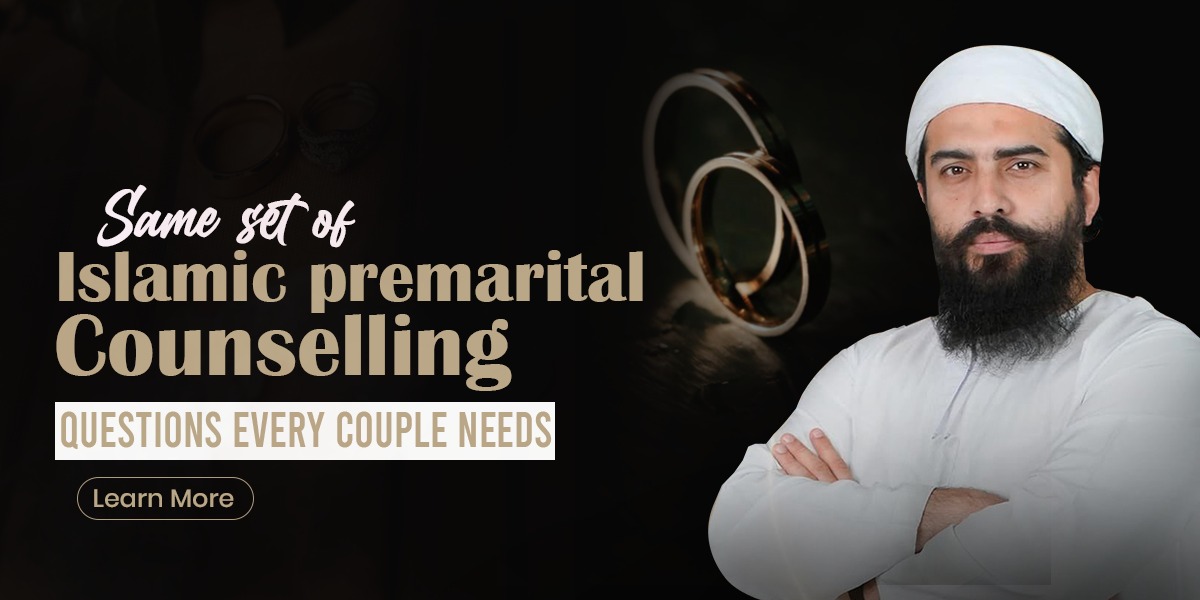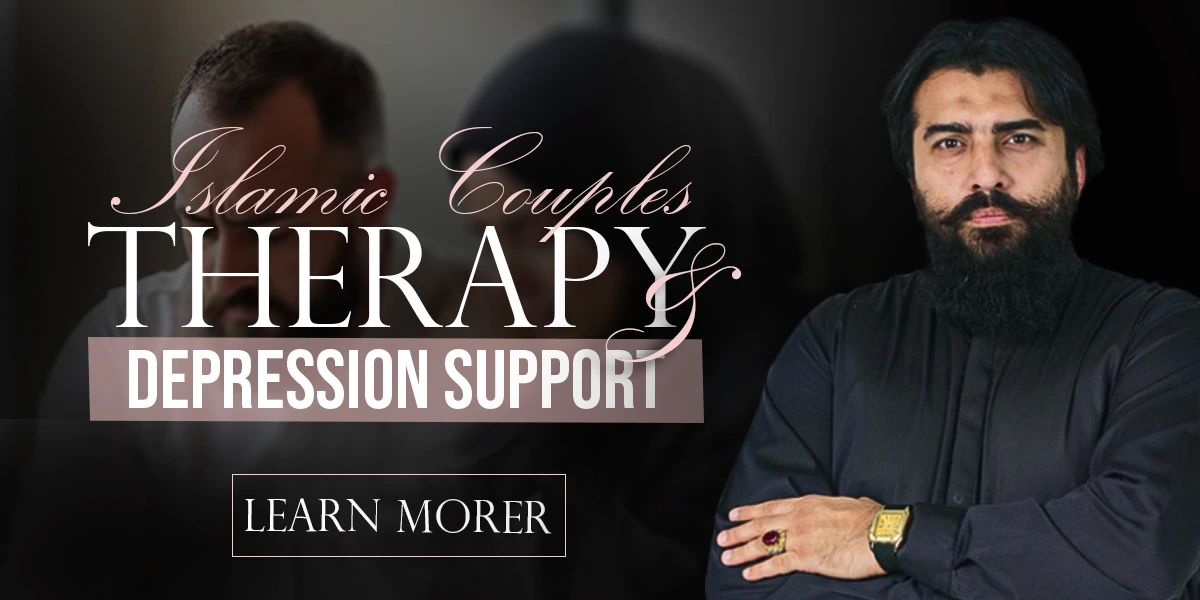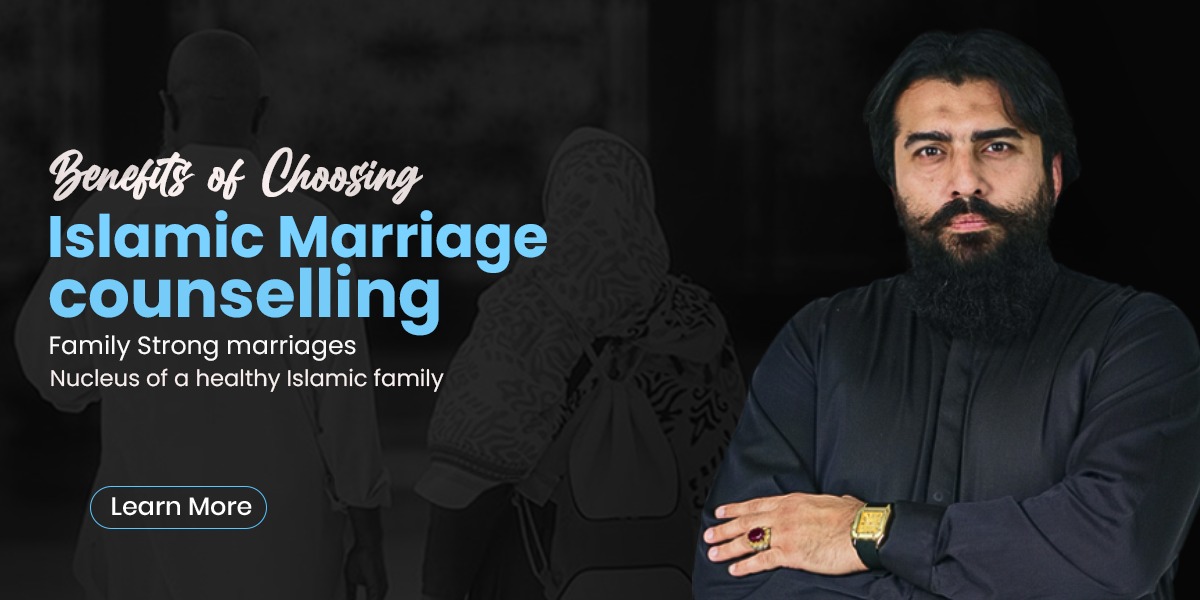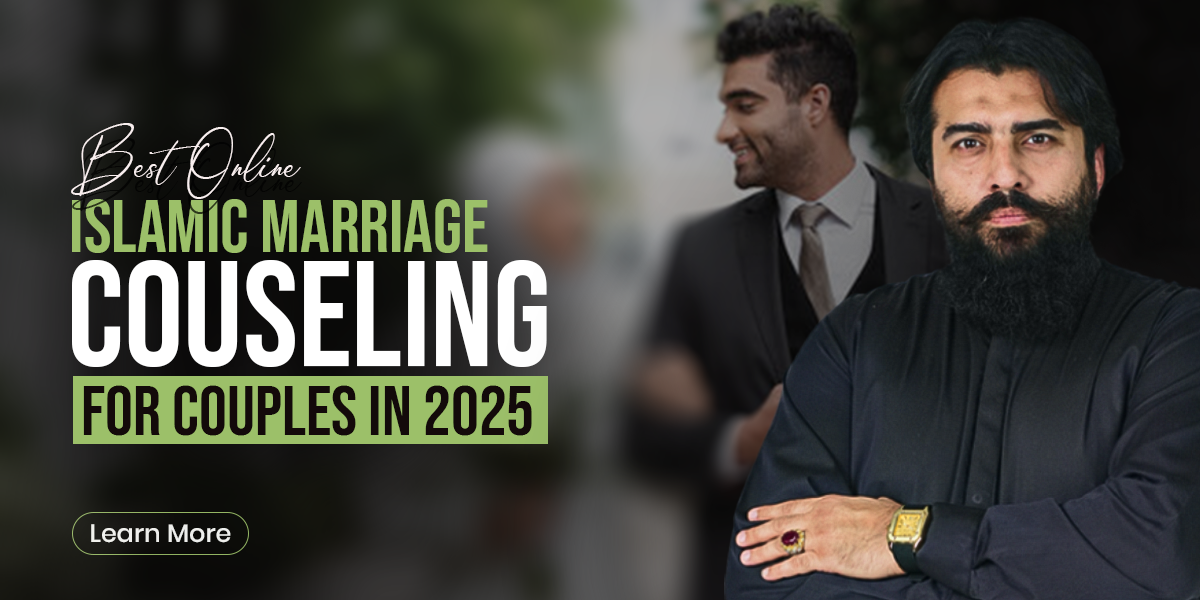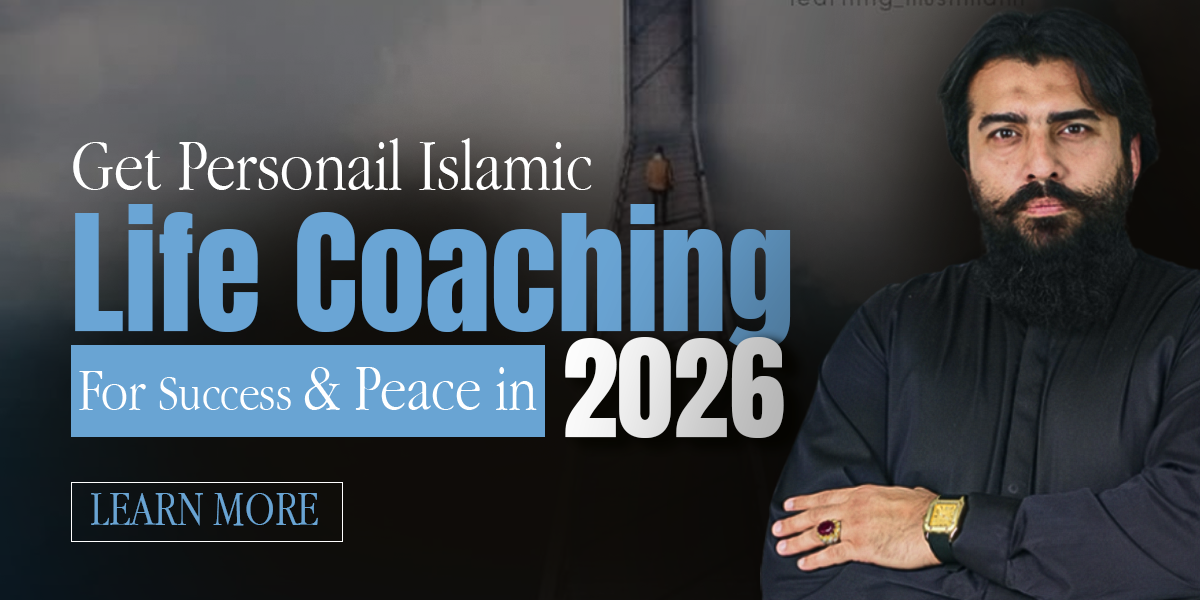Key Premarital Prep Steps for Muslim Couples
Preparation is not optional in the sacred journey toward Nikah; it’s essential. For Muslim couples, starting strong with the right mindset, tools, and knowledge can make all the difference between surface-level compatibility and a deep, spiritual connection.
Islamic premarital counselling offers a structured path to explore this connection before making a lifelong commitment.
Why Initial Consultations Matter
Many couples enter marriage thinking love alone is enough. But in reality, aligning your expectations early across faith, culture, and future planning is the true bedrock of a sustainable Islamic marriage.
During the first premarital counselling session, couples typically:
- Share their family background, cultural norms, and religious expectations
- Discuss long-term goals, including family, finances, and career paths.
- Begin uncovering unspoken assumptions about gender roles, privacy, and in-law involvement.
Your initial consultation sets the tone. It helps your counsellor guide discussions with compassion and relevance. To ensure you’re working with the right professional, explore this trusted guide on choosing the best Islamic marriage counsellor.
Use Islamic Self-Assessments Before You Begin
Before your first session, take some time to reflect individually using faith-centred tools. This clarity helps you show up intentionally and constructively.
Here are three simple self-assessments:
| Area | What to Reflect On |
| Religiosity & Values | How closely do your daily practices and long-term beliefs align with your partner? |
| Communication Style | Are you assertive, passive, or reactive during stress or disagreements? |
| Marriage Vision | What does “a successful Islamic marriage” mean to you? |
These reflections aren’t about passing or failing. They’re about understanding and communicating honestly.
Prepare Emotionally & Spiritually
Marriage in Islam isn’t just a contract, it’s a spiritual partnership. Emotional readiness is just as important as legal clarity.
Here’s how to prepare:
- Journal Your Intentions: Write down what you hope to give and receive in a marriage.
- Make dua and istikhara: Ask Allah Almighty for guidance, clarity, and barakah in your decision.
- Reflect on Surah Ar-Rum (30:21): “And among His signs is that He created for you from yourselves mates that you may find tranquility in them…”
This ayah powerfully reminds us that peace in marriage is a divine sign, not a worldly guarantee. It requires spiritual intention and mutual effort.
Building Marriages on Quran & Sunnah:
Before two hearts unite in Nikah, their foundations must be rooted in divine knowledge, not fleeting trends. For Muslim couples preparing for marriage, Quranic guidance offers a timeless framework for emotional, spiritual, and practical harmony.
Today’s premarital counselling must go beyond compatibility quizzes and instead centre on faith-based education that grounds couples in their shared duties, rights, and goals as believers.
Quranic Foundations for Marriage
Two powerful ayats provide the cornerstone of Islamic marital life:
Surah An-Nisa (4:34):
“Men are the protectors and maintainers (qawwamun) of women…”
This verse introduces Qiwamah, the husband’s role in financial responsibility and protective leadership, distinct from domination. It implies service, stability, and moral accountability.
Surah Ar-Rum (30:21):
“And among His signs is that He created for you from yourselves mates that you may find tranquility in them…”
This verse frames marriage as a source of sakīnah (peace), mawaddah (affection), and rahmah (mercy), emphasising emotional connection alongside duty.
Together, these verses establish a divine balance: responsibility meets tenderness, structure meets affection.
Learn how these values are taught in Halal Marriage Pre-Marital Islamic Counselling
Understanding Marital Roles Through the Sunnah
Islamic roles are dynamic, rather than imposing rigid stereotypes; they are tailored to the context and capabilities. The Prophet ﷺ demonstrated kindness, emotional availability, and a strong sense of household involvement. He cooked, sewed, and soothed, modelling rahmah-led leadership.
- Qiwamah: The husband’s duty to provide, protect, and lead with ihsan (excellence).
- Taa’ah: The wife’s role is to cooperate, support, and co-stewardship of the home and faith.
- Mutual Shura: Decisions made together, not dictated.
It’s not about power, but purpose.
Avoiding Spiritual Pitfalls Early
A righteous marriage is not just about love, it’s about safeguarding the heart from sin. Counselling offers a space to name and tackle hidden faults that, left unchecked, erode trust.
Common marital pitfalls to address early include:
- Jealousy or comparison rooted in social media or unrealistic expectations
- Backbiting or venting to others about your partner violates emotional privacy
- Dishonesty or hidden habits that betray trust over time
By recognising these as spiritual diseases, couples can begin their journey with taqwa (God-consciousness) and accountability, not pretence.
Islamic vs. Secular Expectations
In today’s world, many Muslims unconsciously internalise humanist or secular ideals of marriage, shaped by TV shows, social media, or non-Islamic psychology. These include:
- “Marriage should be 50/50 always” (vs. Islamic flexibility in roles)
- “My partner must meet all my emotional needs” (vs. placing ultimate reliance on Allah)
- “If I’m unhappy, something must be wrong with the marriage” (vs. understanding tests are part of growth)
Counselling helps couples identify and untangle these narratives, aligning their vision with Islamic values rather than social algorithms.
To understand the rise of these secular influences and how they contrast with an Islamic worldview, read The Rise of Humanism.
Practical Tools for Muslim Couples
When couples prepare for Nikah, many focus on emotional compatibility or family approval, but few are taught how to solve problems as a team. That’s why practical, faith-centred workshops are critical in premarital counselling.
These workshops don’t just address theory, they build skills every Muslim marriage will eventually rely on: from budgeting to forgiveness, parenting to decision-making.
Why Skill-Building Workshops Matter
Marriage is an ibadah (act of worship), but worship requires training. Islamic workshops provide a guided space where couples practice conflict resolution, financial communication, and future planning through a Qur’anic and Prophetic lens.
Explore faith-rooted resources like: Strengthen Your Marriage Through Islamic Counselling
1. Financial Transparency & Halal Planning
Money may not buy love, but financial misalignment can quietly strain a marriage.
Islamic premarital workshops include tools like:
- Budgeting for Barakah: Align Your Monthly Spending with Islamic Values and Priorities.
- Halal income clarity: Discuss career plans and income sources that comply with Shari’ah.
- Shared sadaqah goals: Plan charity as a couple to build spiritual intimacy.
“The best of you are those who are best to their families.” (Tirmidhi)
Being good to your spouse includes financial honesty and fair division of responsibilities.
2. Conflict Resolution Through Sunnah Tools
Disagreements are natural, but how we respond determines the outcome.
Workshops focus on Islamic interpersonal ethics using:
- Sulh (Reconciliation): Address hurt calmly and seek resolution, not victory.
- Sabr (Patience): Understand timing in communication, sometimes silence is wisdom.
- Husn al-Dhann (Good Assumption): Replace suspicion with trust unless proven otherwise.
Couples practice resolving tension in real-life conflict scenarios while keeping Allah at the centre of the process.
3. Parenting Preparedness in Islam
Even if children aren’t immediate, discussing parenting philosophy early helps avoid future rifts.
Workshops cover:
- Islamic parenting models: Based on Prophet Muhammad’s ﷺ compassion, discipline, and emotional availability.
- Balancing work, play, and tarbiyah: How to raise emotionally intense children today.
- Family as a team: Encouraging mutual roles, not just maternal defaulting.
4. Joint Decision-Making Drills
The Prophet ﷺ consulted his wives in major decisions, a model of shared leadership.
Counselling includes:
- Mock disagreements: Practice resolving them using Qur’anic references and mutual respect.
- Values Alignment: What’s Non-Negotiable in Your Life, Lifestyle, or Goals?
- Decision trees: Learn how to use a structured Islamic framework when faced with tough calls.
These tools prepare couples to handle real-life stressors with clarity and calm, not chaos.
As one counsellor shares:
“When couples practice Sulh and Sabr in premarital workshops, their arguments after marriage don’t escalate; they resolve. That’s the Sunnah difference.”
Deep-Dive Questions Every Muslim Couple Must Answer
Choosing a life partner is one of the most sacred and strategic decisions a Muslim will ever make. While love and chemistry are essential, Islamic compatibility is grounded in shared values, expectations, and clarity. That’s why structured, in-depth questionnaires and dialogue sessions are a cornerstone of serious premarital preparation.
“Nikah is not just between two people, it’s between two worldviews, two family systems, and two sets of life goals.” – Shaykha Atifah Ahmed
Why Deep Dialogue Matters Before Nikah
Most couples don’t stumble because they disagree, but because they never discussed the big questions early. These guided conversations help couples uncover dealbreakers, clarify their faith expectations, and create a healthy communication foundation before making a lifelong commitment.
Legal Foundations for a Blessed Nikah
Marriage in Islam is not just a spiritual bond, it’s a legally binding contract governed by divine guidance and ethical responsibility. For Muslim couples preparing for Nikah, understanding the legal and logistical foundations ensures that their union is protected, respected, and grounded in clarity from the outset.
Setting a Fair and Faithful Mahr
The mahr (dower) is not a symbolic gift, it is a divine right of the bride and a legal obligation on the husband.
“And give the women [upon marriage] their [bridal] gifts graciously.” Surah An-Nisa 4:4
Key Points:
- Immediate vs. Deferred Mahr: You can agree to pay a portion upfront (mu’ajjal) and the rest later (mu’akhkhar).
- Amount Matters Less than Meaning: Mahr should be reasonable, not burdensome. It can be financial, educational, or a value service (such as memorising a surah).
- Custom vs Shari’ah: Avoid extravagant cultural norms that defeat the purpose of ease and barakah.
Tip: Include exact mahr terms in your Nikah contract to avoid future disputes.
Understanding the Role of the Wali
In Islamic law, a wali (guardian) is required for a woman to marry, especially if she is never-married or previously unmarried. His role is one of protection, not control.
Responsibilities of the Wali:
- Ensures the suitor is suitable in terms of their faith and character.
- Represents the bride’s interests in the marriage agreement.
- May be involved in mahr discussions or contract review.
Note: If the woman is a convert or does not have a Muslim wali, qualified Islamic authorities (e.g., imams or scholars) can serve this role.
Navigating Civil vs. Islamic Law
Muslim couples in the USA must balance their Islamic responsibilities with local legal requirements. That includes:
| Legal Element | Islamic View | Civil Law Consideration |
| Marriage Registration | Nikah is valid without a civil license | Civil registration grants legal rights (e.g., inheritance, property) |
| Divorce | Talaq/Khul’ under Shari’ah | Must file in court for a legal divorce |
| Inheritance | Shari’ah-based wealth division | U.S. law follows secular rules unless an Islamic will is in place |
Pro Tip: Collaborate with an Islamic counsellor and lawyer to align both systems and safeguard your rights.
Drafting a Personal Marriage Contract
Your Nikah contract can and should be customised to include lifestyle preferences, financial expectations, or conditions related to travel, education, and work.
Growth Doesn’t End After Nikah
Too many couples invest in premarital preparation, but none after. That’s why a 6-month post-Nikah mentorship is crucial for long-term success.
Benefits include:
- Adjusting to real-life challenges with spiritual support
- Conflict management coaching during the adjustment phase
- Sustaining emotional intimacy through guided check-ins
Schedule your first follow-up session during your counselling phase to avoid backsliding later.

